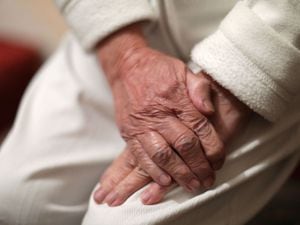Cathy Dobbs: We need a total rethink on help for carers
The difference between how we treat adults and children is startling.

Go to any primary school in the UK and there will be at least one child that has to be dragged through the gates crying. They will be pleading, saying they don’t want to go. However, their mum, who has to cope with this ordeal every morning, either picks them up or pulls them along, trying not to lose her rag or cry herself.
We believe we know what’s best for children and so we remove their choices – they must go to school and that is final. The state is so determined every child goes to school that parents can be threatened with legal action if a pupil’s attendance is poor. When we are so firm and decisive with children, why do we then all turn to jelly when it comes to adults?
Why is it that someone with dementia, who is less capable than your typical five-year-old, can decline care and we simply accept it? Family members can’t bear to see them struggle on alone and so they then have to become the carers. I’ve got friends exhausted from balancing care and work duties, and I’ve seen first-hand how caring for a partner can ruin the health of an elderly carer.
Carers UK estimates that the number of unpaid carers could be as high as 10.6 million and 12,000 people become unpaid carers every day. To some who find being a carer a struggle, it can feel like a tortuous, low-paid, thankless Groundhog Day.
Imagine if daycare for people who need support was mandatory and enforced in the same way that school is for children. At least it would give carers a break and it would also help people return to work.
We give working parents financial support with child care – wouldn’t it be worth it to do the same with carers?
Carers UK says that on average, 600 people a day leave work to care. The value of unpaid care is equivalent to a second NHS in England and Wales, which in 2020/21 received an estimated £164 billion in funding.
If we could return carers to the workforce we would solve the shortage of workers and potentially improve the lives of millions.
Sadly, even when external care is provided it is often hit and miss, with random carer workers turning up at odd hours like 5pm to get someone ready for bed, or at noon to get them up.
If we could be as organised and regimented over adult care as with childcare, maybe we would see a change. Until then, if you are a carer – thank you, you are doing an amazing job.





